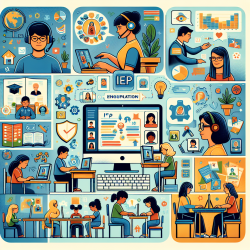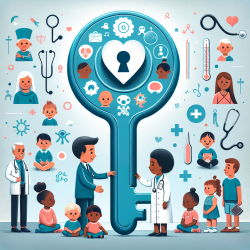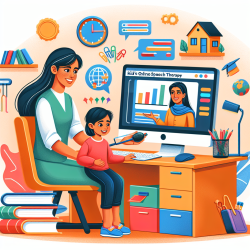As we navigate the complexities of providing quality education to students with diverse needs, Individualized Education Programs (IEP) stand out as a critical tool in our arsenal. These personalized plans are more than just documents; they are a commitment to the success and well-being of our students. However, the traditional approach to IEP planning and meetings faces challenges, from staffing shortages to logistical issues. It's here that online therapy services, such as speech therapy in schools, offer a transformative solution.
The advent of online therapy services has been a game-changer for special education. By leveraging technology, we can now provide uninterrupted access to essential services like speech therapy, occupational therapy, and more. This innovation is not just about overcoming therapist staffing shortages; it's about reimagining how we deliver special education services to meet the needs of every student.
For government health regulators, understanding the impact of online therapy services on IEP planning and meetings is crucial. These platforms offer a plethora of benefits that can significantly enhance the effectiveness of IEPs. Here are a few key advantages:
- Accessibility: Online therapy services ensure that students have access to specialized support regardless of their geographical location or the availability of local therapists. This is particularly beneficial for rural or underserved areas.
- Flexibility: The virtual nature of these services allows for greater flexibility in scheduling IEP meetings and therapy sessions. Parents, educators, and therapists can collaborate more efficiently, ensuring that every stakeholder is involved in the student's educational journey.
- Consistency: By providing a stable platform for therapy services, students can continue their progress without interruption, a crucial factor for those requiring regular support.
- Engagement: Online therapy often incorporates interactive tools and resources that can enhance student engagement and motivation, leading to better outcomes.
As we strive towards self-actualization for our students, the role of technology in education becomes increasingly important. Online therapy services not only address current challenges but also open up new possibilities for how we think about and implement IEPs. For government health regulators, recognizing and supporting the integration of these services into school systems is a critical step towards ensuring that every child receives the personalized support they need to thrive.
The journey towards inclusive education is ongoing, and the integration of online therapy services into IEP planning and meetings is a testament to our collective commitment to this goal. It's time to embrace these advancements and take the next step in ensuring that our education system is equipped to meet the diverse needs of all students.










